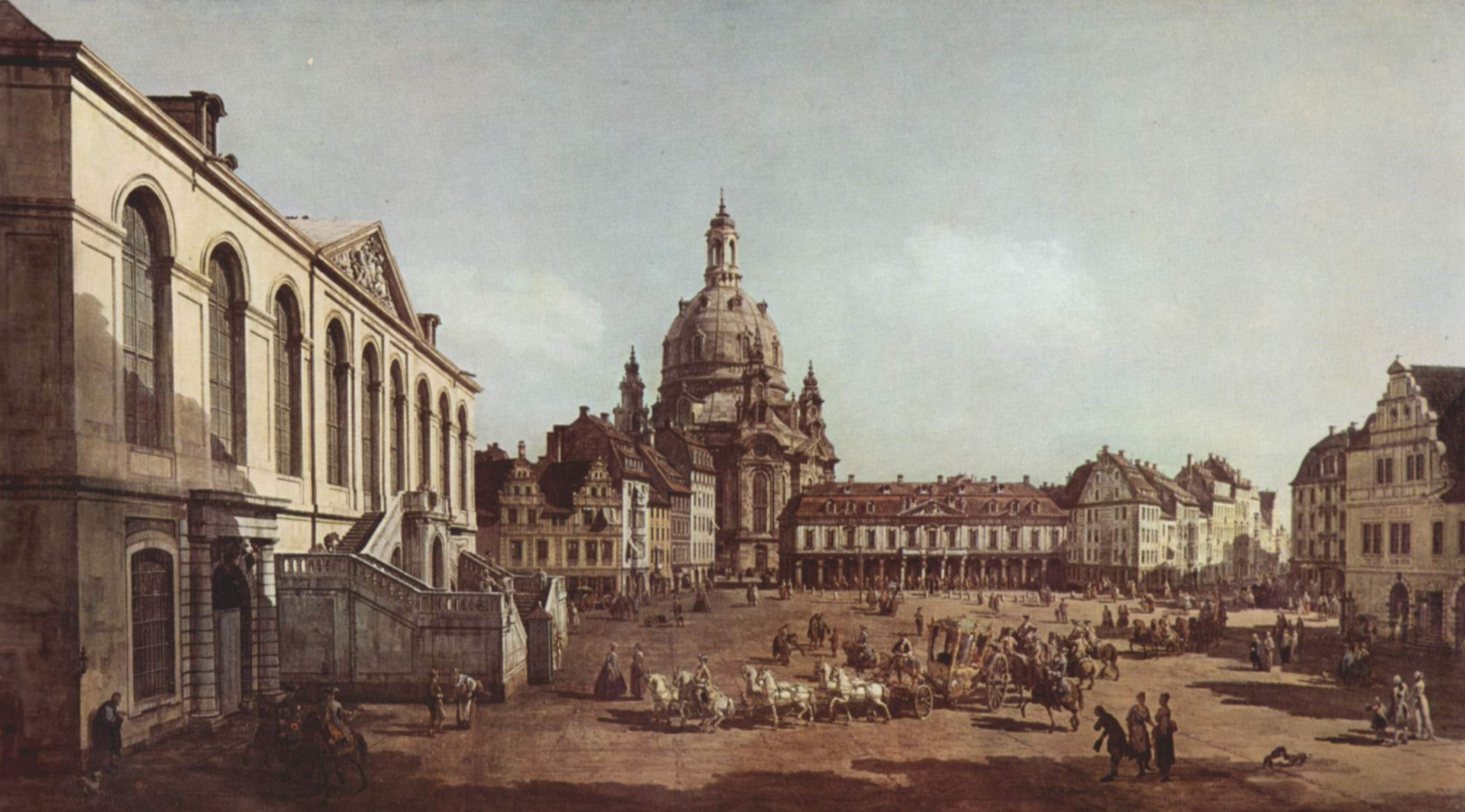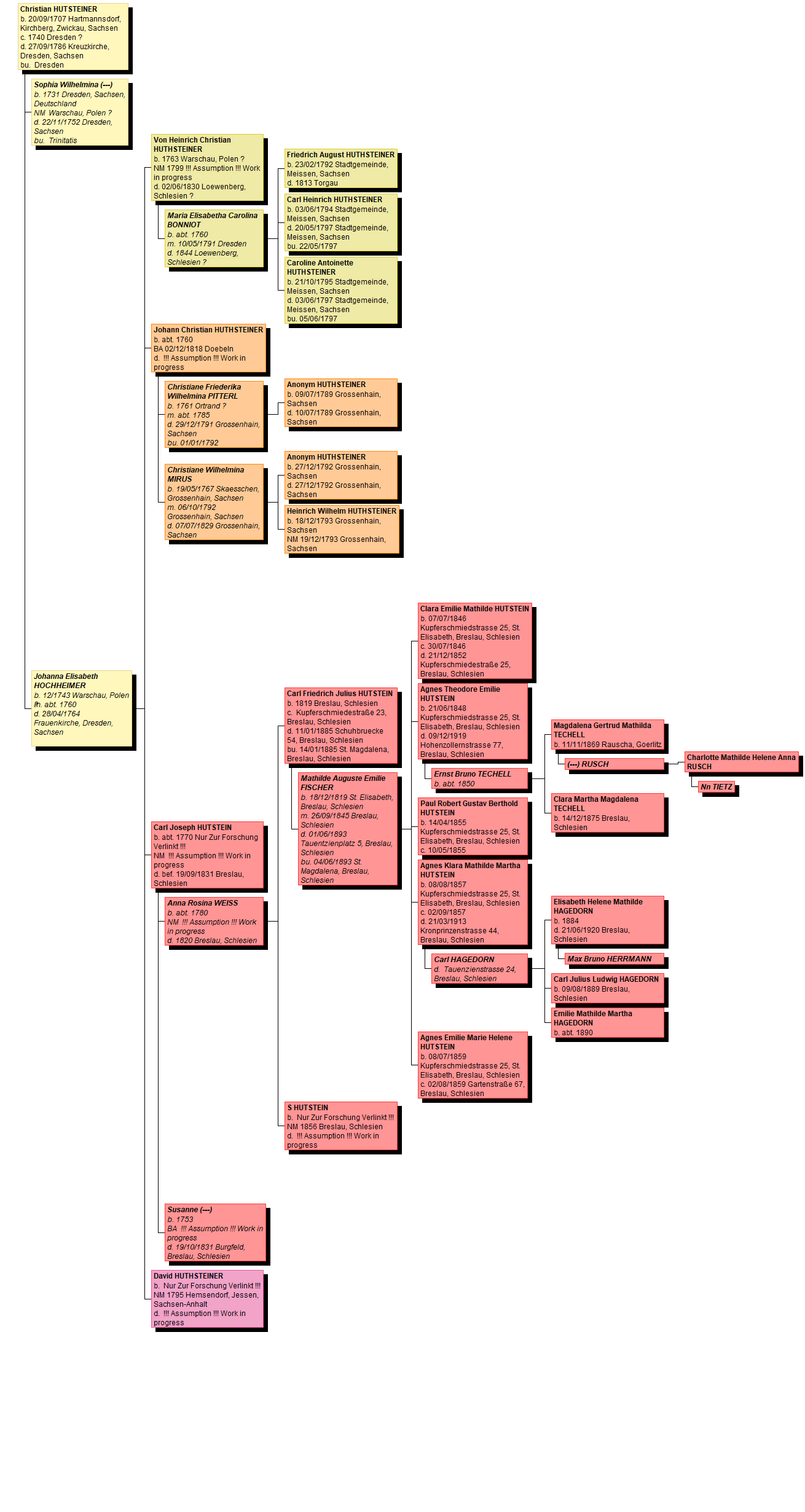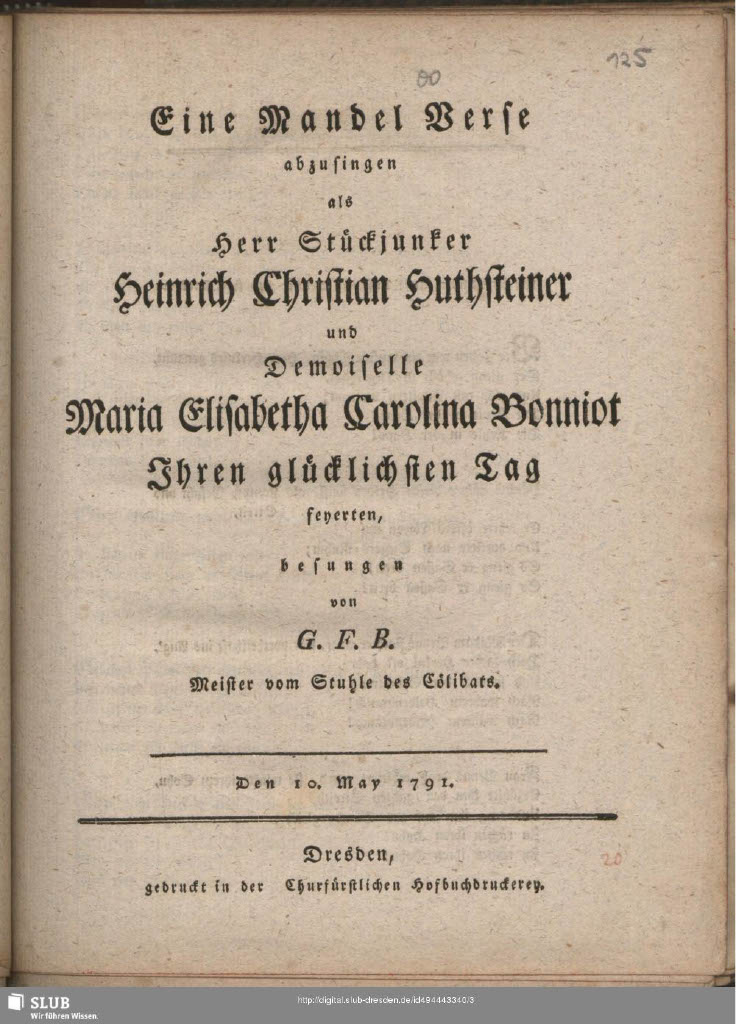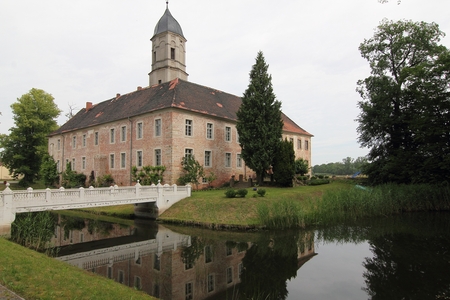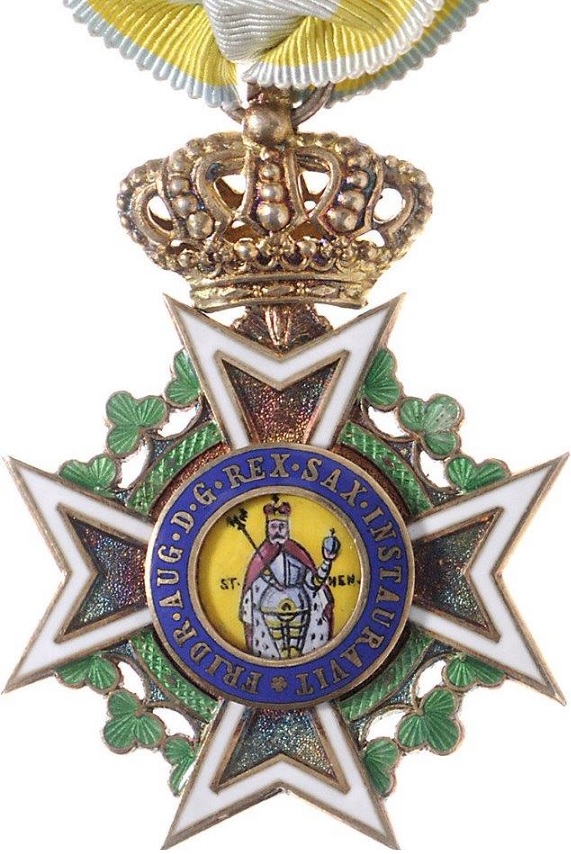Christian Heinrich Huthstein, only son of Johann Heinrich Huthstein (a former tailor in Schneeberg), had to swore the following oath as a “Vormeister des Schneiderhandwerks” (foreman of the tailoring trade) in Borna on 16.10.1789
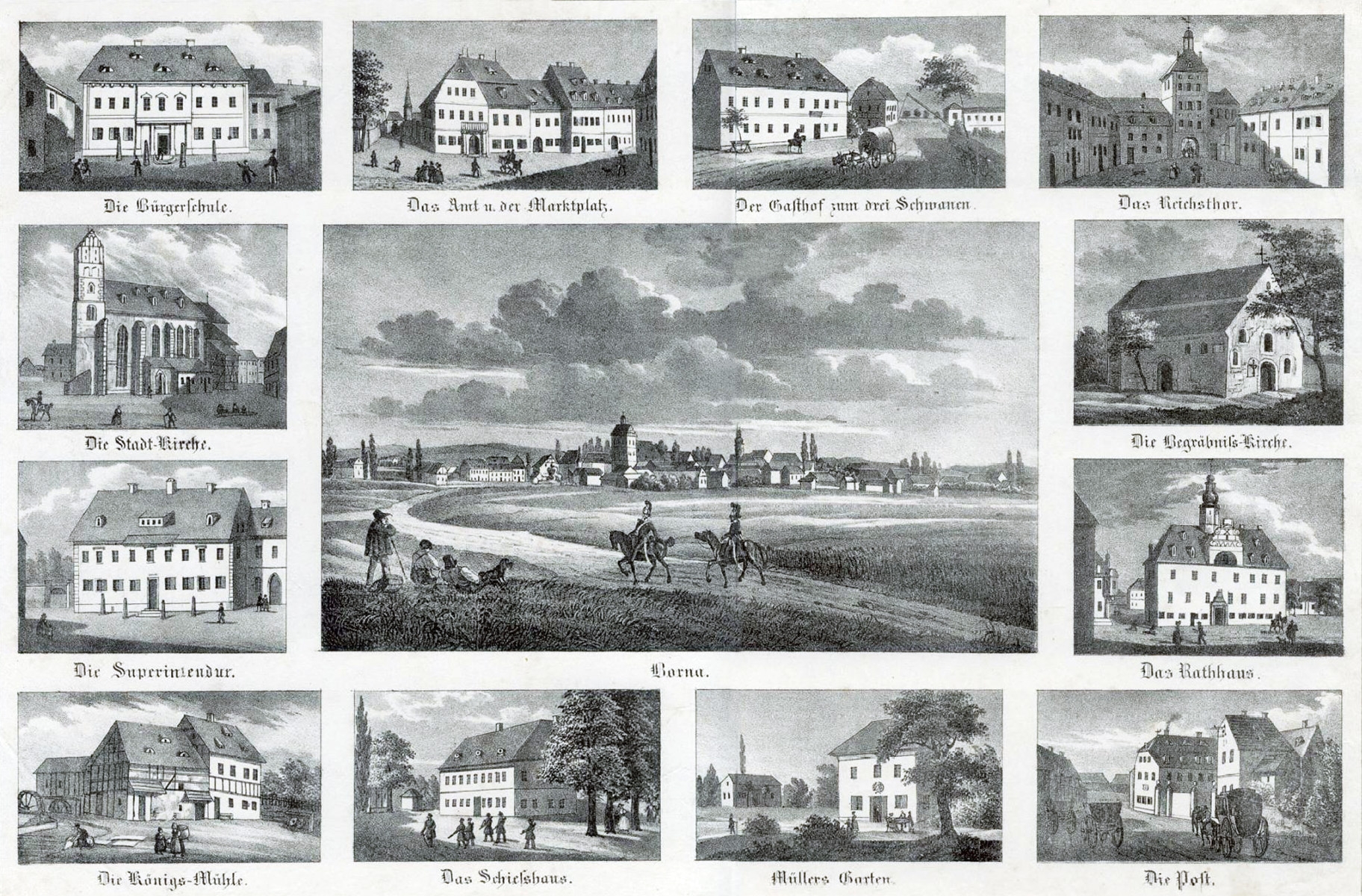
.
BR: 05.08.1763.
The craft of the tailor foreman oath. (1696)
You should vow and grave that you want to have diligent care and respect in these your instructed handicrafts chief and foreman ambassadors, that right, good and efficient work is done by those masters at all times, that no one is favoured or deceived in some ways, but everything honestly and may approach someone righteously, in order that someone, whoever he is, spoils the clothes given for production in cutting or otherwise, and you would be asked for taxes of damage for viewing them, so you want your best knowledge and conscience after giving a thorough report everywhere and correctly assessing the damage found, the accepted apprentices in front of an open drawer in presence of all Master utterly utterly every meal for two years, and do not dismiss them again before adding such, or if you do not complete your two years of apprenticeship right away, give some instructional letter, then they will righteously wander your owed years of wandering around, and since you are assured of the master’s right if you would stop at the handicraft, if you didn’t speak to the master earlier, you won the civil rights in the local town, and the ordinary masterpieces to the elector. Saxon. In accordance with the most gracious commands issued in this regard, manufactured, but not charging them with excessive costs again, but allowing them to be withdrawn as much as possible, “next, otherwise the handicrafts hold every quarters and if it is otherwise necessary” “but every meal do not meet with the fore-consciousness of the authorities, but at all times ask someone outside of the council to do so “
(Note in margin on p. 93b: These words are the
June 10, 18 was deleted with the advice and handw. Satisfaction) next to the handicraft income and expenses set off annually with all diligence, peace and unity in handicraft obtained, and neither give any cause for some quarrel or argument or even start to quarrel, especially but again (against) EERath do not make allies, or the craft of your guild, the Churf if you have it. Saxon. Deserve letters and other righteous habits, but want to keep steady, steadfast and faithful everywhere both about the traditional craft order and about “the so-called Grimmian Treaty in your craft shop” (later changed to: “the righteous otherwise responsible for the craft”), when God and his holy word are to help you.
Des Handwergs der Schneider Vormeister-Eyd. (1696)
Ihr sollt geloben und schweren, daß Ihr in diesen euern anbefohlenen Handwergks-Ober- und VormeisterAmbte fleißige Sorgfalt und Achtung haben wollet, daß rechte, guthe und tüchtige Arbeith von denen Meistern iederzeit gemacht, niemand darbey in einigerley Wege vervortheilet oder hintergangen, sondern alles ehrlich und rechtschaffen zugehen möge, daferne auch iemanden, wer der auch sey, die zur Verfertigung gegebenen Kleider in (beim) Zuschneiden oder sonsten verderbet, und Ihr zu deren Besichtigung, auch Taxes des Schadens begehret werden würdet, so wollet Ihr euren besten Wissen und Gewissen nach allenthalben gründlichen Bericht davon erstatten, und den außgefundenen Schaden richtig taxieren, die angenommenen LehrJungen vor offener Lade in Beyseyn derer sämbtl. Meister iedesmahl uff 2 Jahre vollkommen uffdingen, und dieselben, ehe sie solche beygeleget, nicht wieder loßsprechen, oder wenn Sie gleich diese Ihre zwey LehrJahre nicht erfüllet, einigen LehrBrieff ertheilen, folgendts dieselben Ihre schuldigen WanderJahre rechtschaffen verwandern, und da Sie umb Zusagung des MeisterRechts beym Handwergk anhalten würden, Sie nicht eher zum Meister sprechen, biß bey hiesiger Stadt Sie das BürgerRecht gewonnen, und die gewöhnlichen MeisterStücke dem Churfürstl. Sächs. hierinne ergangenen gnädigsten Befehlichen gemäß, verfertiget, darbey aber dieselben mit übermäßigen Costen denen zuwieder nicht belegen, sondern solche, soviel immer möglich, einziehen lassen, »hiernechst sonst das Handwergk zwart alle Quartale und soofft es sonsten von nöthen« »seyn wird, doch iedesmahl mit Vorbewust der Obrigkeit nicht versamblen, sondern alle zeit iemands auß des Raths Mittel darzu erbitten«
(Randvermerk auf pag. 93b: Diese Worte sind den
10. Juni 18 außgelöschet worden mit des Raths und Handw. Zufriedenheit) hiernechst des Handwergks Einnahmen und Ausgaben Jährlich mit allen Fleiße verrechnen, Fried undt Einigkeit im Handwergke erhalten, und weder zu einigen Zanck noch Streit einigen Anlaß geben oder selbsten zu zancken anfangen, fürnehmlich aber wieder (wider) E.E.Rath keine Verbündnüsse machen, oder aber das Handwerck an Ihrer Innung, dießfalls habenden Churf. Sächs. Briefen und andern rechtschaffenen Gewohnheiten benachtheiligen, sondern sowohl über die hergebrachte HandwergksOrdnung, als auch über »den in euerer HandwergksLade vorhandenen sogenannten Grimmischen Vertrag« (später geändert in: »die sonst dem Handwerke zuständigen Gerechtsame«) allenthalben stet, fest und treulich halten wollet, als euch Gott und sein Heiliges Wortt helffen sol.
.pag. 95b
Mstr.Johann Georg Wiese, 25.9.1780
Mstr. Johann Gotthelf Schmidt u. Mstr. Christian Heinrich Huthstein, October 16, 1789.
Christian Heinrich Huthstein
Professions: Tailor from Schneeberg / Erzg. {Johann Heinrich Huthsteins, who were
Schneider’s only son in Schneeberg}; October 16, 1789 foreman of the tailoring trade. BR: 08/05/1763.
Stoye_Band_51.pdf (genealogy.net)
Friedrich August Huthstein
Beruf: Schneider in Borna-Vorstadt {Christian Heinrich Huthsteins, Bürgers und Schneiders allhier in der Vorstadt einziger Sohn}. BR: 01.10.1781.
August Ludwig Huthstein
Beruf: Schneidergeselle in Borna-Vorstadt {Mstr. Friedrich August Huthsteins, Bürgers und Schneiders allhier ältester Sohn}. BR: 07.01.1814.

